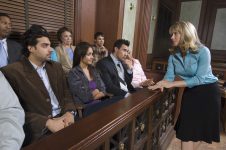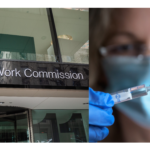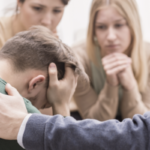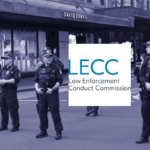What Is Juror Bias and How Can It Be Prevented?

According to the Australian legal system, if you are on trial for a crime, you will either be tried by a judge alone or by a judge and jury.
Many people believe that having a jury trial helps guarantee the fairest outcome, because instead of the decision resting on a single person, the outcome of the trial is decided by twelve people from different backgrounds.
Unfortunately when it comes to jury trials, there is no way of knowing exactly what each individual member’s personal beliefs and opinions might be.
Juror bias can be a problem especially in high profile cases which have received a large amount of media attention.
If jurors have already read about the case and formed their own opinions either for or against the defendant, it may be difficult for them to put these aside and make a decision based only on the evidence presented at the trial.
While a judge should, theoretically, have the experience and legal understanding to be able to put their personal bias and opinions aside and only factor the admissible evidence into their decision, members of the public may be less able or inclined to do this.
This makes jury selection an incredibly important part of any jury trial, and a good criminal defence lawyer will take steps to reduce the risk that the jury is going to be biased against their client in court.
What is juror bias?
Juror bias can take the form of racial or sexual discrimination, or a predisposition for or against the defendant on behalf of their life situation, circumstances, or the nature of the crime they were alleged to have committed.
In some cases, individual jurors may relate to the alleged victim, which could make it difficult for them to look sympathetically or impartially on the defendant.
A lack of legal knowledge can also be an issue when trying to ensure that a jury is as impartial as possible.
In sexual assault cases, problems can arise when jurors don’t understand the legal definition of lack of consent, and assume that because an alleged victim didn’t physically resist their alleged attacker, the act was consensual, even though the law says something else.
Another potential problem in sexual assault cases can be when there is alcohol involved.
Even though alcohol is known to impair a person’s ability to give consent to a sexual act, there is often a societal belief that if both parties were intoxicated, an act can’t be considered non-consensual.
In sexual assault cases, much of the evidence relies on testimony from both parties, and the way the jury perceives both the defendant and the alleged victim can make a crucial difference to their verdict.
Issues like the level of education, perceived credibility, degree of empathy with the victim or the accused, and whether or not the jury member has personal experience of sexual assault or knows anyone who has been a victim can all bias individual jury members, and through them, the jury as a whole.
Another common form of jury bias can be related to the racial background of the defendant or the alleged victim.
According to Ian Lloyd, a prominent criminal defence barrister, people of Middle Eastern background or any other group which is frequently associated with crime in the media, are less likely to get a fair trial by jury than someone from an Anglo Saxon background.
How can juror bias be prevented?
In some cases, where there is likely to be extreme prejudice against the defendant, lawyers can request a judge-only trial for their clients.
This was the option that now convicted murderer Simon Gittany took after intense publicity surrounding the circumstances in which he murdered his fiancée by throwing her off a 15th floor balcony in the Sydney CBD.
In a jury trial, the best way to alleviate bias is during jury selection.
During the process of jury selection, each defence lawyer is allowed to challenge (have removed) up to three jurors if they believe that they will be biased.
The prosecution can also challenge up to three jurors for every defendant. So, for example, if there are two co-accused the prosecution will be able to challenge up to six jurors.
This process is seen as fundamentally problematic when a person of non-Caucasian person is on trial for the following reasons:
- The jury panel is selected from citizens and is likely to be overwhelmingly Caucasian, and
- The prosecution may ‘challenge’ the small number of persons that are of similar background to the non-Caucasian defendant.
So, in effect, a non-Caucasian is likely to have their liberty decided by Caucasians rather than by a ‘jury of their peers’.
The situation in the United States is that lawyers (‘attorneys’) are allowed to ask a wide range of questions to members of ‘grand juries’ and to select from a large number of people.
However, the situation in Australia is very different.
There is no grand jury process here and there are only very limited situations when potential jurors can be asked questions to help determine the likelihood that they will be biased.
A recent example where this took place was in the trial of Gerard Baden Clay who was recently found guilty of murdering his wife in April 2012.
Before the trial started, jurors were asked a number of questions including whether they had previously attended any fundraising events or contributed to any funds relating to Alison Baden Clay’s death.
They were also asked whether they or any of their immediate family lived in the suburbs surrounding the Baden Clay home in 2012, and whether they had ever expressed a view on the guilt or innocence of Gerard Baden Clay.
Although jury trials are believed to be a way for the community to become involved in the justice process, and more representative of societal standards and attitudes than a judge-only trial, there is always the possibility of bias.
This is why it is important to have an experienced defence lawyer on your side if you are facing a jury trial.
A good lawyer is aware of the potential for bias, and can work to help ensure your trial is fair by requesting the questioning of potential jurors or by applying for a judge-alone trial.






